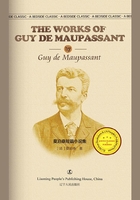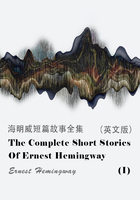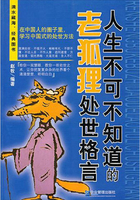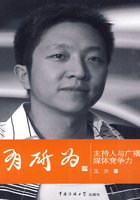'YOU HAVE BEEN IN AFGHANISTAN, I PERCEIVE'
WE KNOW FRUSTRATINGLY LITTLE ABOUT the six years immediately following Holmes's departure from Sidney Sussex but he was about to meet his loyal Boswell, the man who would faithfully record many of his finest cases. The first encounter between Holmes and Watson strikes echoes of the first meeting, in May 1763, between Johnson and Boswell in Thomas Davies's bookshop in Russell Street, Covent Garden. Unremarkable in itself, nonetheless it sowed the seeds of a remarkable partnership. Also, again echoing Johnson and Boswell's meeting, it is now commemorated by a plaque. Affixed to a wall near the pathology laboratory in St Bartholomew's Hospital, the plaque reads:
At this place New Year's Day, 1881 were spoken these deathless words 'You have been in Afghanistan, I perceive' by Mr. Sherlock Holmes in greeting to John H. Watson, M.D. at their first meeting.
John Hamish[4] Watson was two years older than Holmes. He was born in Southsea on 23 March 1852 and was therefore twenty-eight at the time of the famous meeting in Barts. His father, Henry Moray Watson, was a Scottish engineer who had worked with the famous Stevenson family on the building of lighthouses around the coast of his native country. In 1849 he moved to the south coast of England to supervise the construction of further lighthouses there.[5] His mother, Mary Elizabeth Watson (née Adam), was the daughter of an Edinburgh lawyer and was distantly related to the Adam family, which, in the previous century, had produced the architect Robert Adam.
Like Holmes, Watson was the second of two sons. His elder brother Henry had been born in 1845 when the Watsons were still living in Scotland. We know even less of Watson's childhood than we do of Holmes's early years. In fact, there are no records of the younger Watson until he was nearly in his teens. What we do know is that John Watson Senior was sufficiently prosperous by the 1860s to send his sons to English public schools. In 1861, Henry, then aged sixteen, was taken away from the local grammar school where he had previously been taught and despatched to Rugby. Showing the gift for wrecking his chances that he was to demonstrate throughout his short life, he was almost immediately expelled. What he did to deserve so drastic a punishment so soon after arriving at the school is unclear but, in view of his future career, it almost certainly involved drink, women or some combination of the two. Three years later the twelve-year-old John Hamish was sent to Winchester. His stay at public school was as short as his brother's but for a different reason. In July 1865 his father withdrew him from the school in order to take him and his mother halfway around the world.
The Watson family's disastrous journey to Australia is very difficult to explain. Henry Watson Senior was apparently a successful and respected professional man who had carved out a career for himself that was rewarding both financially and intellectually. Why would he have wanted to uproot his family and transport them thousands of miles across the world to a far-off country that had yet to shake off its reputation as nothing more than a dumping ground for convicts and criminals? Yet the Watsons, minus the errant Henry who had made his way to London and was working as a solicitor's clerk, undoubtedly made the long sea voyage. We have the record of their embarkation on Brunei's famous ship the SS Great Britain, which made thirty-plus voyages between Liverpool and Melbourne in the 1860s and 1870s, carrying more than 20,000 passengers to Australia. On 24 July 1865, the Great Britain sailed from Liverpool with the three Watsons, father, mother and younger son, on board. In later years Watson was to remain conspicuously silent about his time in the Antipodes. 'I have seen something of the sort on the side of a hill near Ballarat, where the prospectors had been at work,' he comments in The Sign of Four when faced by the diggings in the grounds of Pondicherry Lodge. Otherwise he never refers his unhappy year in Australia.
The possible inducements to would-be emigrants were many. His father may have believed that even better prospects awaited him as an engineer in Australia than in England. Certainly, the various Australian states, just a few years before the very last transportation of convicts, were eager to attract 'respectable' emigrants with professional skills. Henry Moray Watson may have succumbed to the blandishments of agents employed by the states in England to promote the benefits of living in this new land. He was not alone in dreaming of a better life – Australia's population trebled in the two decades between 1851 and 1871 – but his dreams came to nothing. Within a year the family had booked their passage home. On their return to England in the autumn of 1866, they were greeted by the news that Henry had been sacked from his job as a clerk for persistent drunkenness. Dispirited, the Watsons struggled to take up the life that they had deserted so suddenly and mysteriously. While his father again found work as an engineer, the fourteen-year-old John Hamish, whose schooling in Australia seems to have been undertaken largely by his father, now began a new term at Winchester.
He must have settled back remarkably smoothly into English public school life. The only glimpse we have of him during the next few years is one that he provides himself and it suggests a boy who had found a way of establishing himself in the school hierarchy. In 'The Adventure of the Naval Treaty' he receives a letter from Percy Phelps, an old schoolfellow, seeking Holmes's help. Watson unashamedly recalls the days when he was part of a gang that used to 'chevy him [Phelps] about the playground and hit him over the shins with a wicket'. Clearly John Hamish, as a teenager, had decided that running with the school bullies was a preferable alternative to becoming one of their victims.
Watson left Winchester in 1870 and, after a brief stay at the family home, began his studies for the University of London medical degree. He finally qualified as a doctor in 1878. What do we know of these years? We know that he was diligent in his medical studies and that he worked hard to achieve the London degree he received. The example of his brother's headlong plunge towards the gutter was always before him. Henry Watson, still only in his late twenties, was proving incapable of holding down a job for more than a few months and his relentlessly excessive drinking was already beginning to affect his health. In the spring of 1871 his father paid to send him to take the waters in Malvern, a thinly disguised attempt to force Henry into sobriety, but even at Dr James Gully's Hydropathic Establishment the prodigal son found plenty of opportunities to drink deeply of potations other than the spa waters. He emerged from his 'cure' more broken in health than he had been when he began it.
John had no wish to follow the path his brother had taken. We know that he played rugby, a sport he had enjoyed since his schooldays. 'I believe your friend Watson played Rugby for Blackheath when I was three-quarter for Richmond,' Robert Ferguson says in a letter to Holmes as a means of introduction to him in 'The Adventure of the Sussex Vampire'. Richmond v. Blackheath, first played in 1863, is the oldest regular fixture in club rugby and hidden behind Ferguson's remark is the story of one of the most infamous matches in its early history. Watson and Ferguson were on opposing sides in January 1877 when Blackheath faced Richmond before a large crowd that became increasingly unruly as the match progressed. Large numbers of spectators invaded the pitch and, in the resultant tumult, several of them were injured, as were players on both sides.[6]
There is a further mystery about Watson's early career, which persists in spite of the attempts by many commentators to ignore it. In 1878, after graduating from the University of London, he joined the Army Medical Corps. Why did so promising a medical man join the army? In the 1870s, the brightest and the best of the profession did not, as a rule, choose to serve in the forces. Quite the contrary. The Army Medical Corps was the refuge for those too idle, dissipated or untalented to pursue a career elsewhere. Watson had already shown that he was a more than competent doctor. After taking his degree at University College, London, he had been a houseman at St Bartholomew's Hospital, a position that would not have been open to any but the most gifted of medical graduates. The explanation can only lie in some scandal that prevented Watson from continuing at Bart's (as it is familiarly known) and diverted him on to the path that was eventually to lead, via a number of false turnings, to Baker Street and Sherlock Holmes.
The image that we have of Watson as the stolid representative of Victorian values, John Bull in a frock coat, is a misleading one. Watson, certainly in his younger days, was both a womanizer and a gambler. Holmes's laconic remark that 'the fair sex is your department' is more than supported by what we know of Watson's tangled love life over the decades. Like his brother, he had an eye for an attractive woman. He himself boasts complacently of 'an experience of women which extends over many nations and three separate continents'. Watson's financial irresponsibility and the urge to gamble beyond his means remained with him into middle age. In 'The Adventure of Shoscombe Old Place' he talks ruefully of paying for his knowledge of the Turf with 'about half my wound pension' and there is the curious incident of the chequebook, locked in Holmes's desk, mentioned so casually in 'The Adventure of the Dancing Men'. It is clear enough from the reference that, as late as 1898, his friend was keeping his chequebook under lock and key and that the doctor had to ask for access to it. Surely, this can only have been a mutually agreed arrangement designed to help Watson overcome the urge to rush out and enrich the bookies at his own considerable expense. It is impossible to be certain of the details of the misdemeanours that derailed Watson's promising career but it seems clear that, if we were to assume that it involved either a woman or a gambling debt, possibly both, we would not be far wrong.
Whatever the reasons for Watson's decision to join the Army Medical Corps – and it is hard to avoid the conclusion that he was forced to it by circumstances – he arrived at Netley in Hampshire in the autumn of 1878. The Army Medical School had been founded at Chatham in 1860 but moved a few years later to Netley where it was to remain until 1902. Once his studies at Netley were complete, he was attached, he tells us, to the 5th Northumberland Fusiliers as Assistant Surgeon. He continues:
The regiment was stationed in India at the time, and before I could join it, the second Afghan war had broken out. On landing at Bombay, I learned that my corps had advanced through the passes, and was already deep in the enemy's country. I followed, however, with many other officers who were in the same situation as myself, and succeeded in reaching Candahar [sic] in safety, where I found my regiment, and at once entered upon my new duties. The campaign brought honours and promotion to many, but for me it had nothing but misfortune and disaster. I was removed from my brigade and attached to the Berkshires, with whom I served at the fatal battle of Maiwand. There I was struck on the shoulder by a Jezail bullet, which shattered the bone and grazed the subclavian artery.[7] I should have fallen into the hands of the murderous Ghazis had it not been for the devotion and courage shown by Murray[8] my orderly, who threw me across a pack-horse and succeeded in bringing me safely to the British lines.
The Battle of Maiwand is today almost forgotten, one of those innumerable clashes between British troops and restive natives that pepper the history of imperial expansion. At the time, it made frontpage news and was seen as a shocking reversal for the British army. Coming so soon after the disastrous defeat inflicted by the Zulus on troops led by Lord Chelmsford at the Battle of Isandhlwana, it was further proof that imperial armies were not invincible.
Maiwand was a small village some fifty miles north-west of Kandahar in Afghanistan where, in July 1880, two armies – a small British force led by General Burrows and a much larger contingent of Afghans led by Ayub Khan – collided. Little went right for the British. Burrows proved braver than he was astute in his tactics and was easily outflanked by the Afghans; his native allies, very sensibly, decided that discretion was the better part of valour and departed the battlefield in droves when they realized how outnumbered the British were. The general and his troops, including Assistant Surgeon John H. Watson, were forced to fall back towards Kandahar. The Berkshires acted as a rearguard for the retreat, losing nearly half their number in the process.
The last stand of the Berkshires has been described by William McGonagall, perhaps the world's worst poet, in his own inimitable style:
Then Ayoub concentrated his whole attack on the Berkshire Regiment,
Which made them no doubt feel rather discontent,
And Jacob's Rifles and the Grenadiers were a confused and struggling mass,
Oh heaven! such a confused scene, nothing could it surpass.
McGonagall's scansion, vocabulary and ability to choose an apposite rhyme may be woeful but his short description of the confrontation is accurate enough. The Berkshires might well have suffered even worse casualties, had a relief force in Kandahar, alerted to the unfolding catastrophe by some of the fleeing native troops, not set off for the battlefield. Watson was among those who would, almost certainly, have been overwhelmed by Ayub Khan's men had the relieving troops not arrived.
Invalided out of the army, Watson returned to England in 1881, shaken in both body and soul by his experiences in Afghanistan. He 'had neither kith nor kin in England'. His father had died of pulmonary pneumonia in 1875 and his mother fell victim to a similar respiratory disease a year later. Of his brother Henry, who had last been sighted in Paris by a friend of the family in 1874, he had heard nothing in years. He was uncertain what his future might be. In his own words, he was 'as free as air – or as free as an income of eleven shillings and sixpence a day will permit a man to be', but he had no clear idea what he would do with his freedom. Faced with his dilemma, he 'naturally gravitated to London, that great cesspool into which all the loungers and idlers of the Empire are irresistibly drained'. Staying at a private hotel in the Strand, 'leading a comfortless, meaningless existence, and spending such money as I had, considerably more freely than I ought', he had reached a low point in his life when a chance encounter changed it for ever.
He was standing in the Criterion Bar in Piccadilly when some one tapped him on the shoulder. It was 'young Stamford who had been a dresser under me at Barts'. In the course of their conversation, Watson mentioned that he was looking for a way of leaving his expensive accommodation in the private hotel and finding lodgings. Stamford told him that he knew 'a fellow … working at the chemical laboratory up at the hospital' who also wanted someone to go halves with him in sharing a set of rooms in Baker Street. The fellow was Sherlock Holmes.
Stamford warned Watson in advance of Holmes's cold-blooded rationality. 'I could imagine his giving a friend a little pinch of the latest vegetable alkaloid,' he remarked, 'not out of malevolence, you understand, but simply out of a spirit of inquiry in order to have an accurate idea of the effects.' Yet, when the two men met in the laboratory at Barts, Holmes was far from cold-blooded. He was in a state of high excitement. After his offhand observation that Watson had been in Afghanistan, he was full only of what he had just achieved – 'the most practical medico-legal discovery for years'.
Watson and Stamford had arrived just in time to witness a eureka moment. What Holmes had discovered – a reagent precipitated only by haemoglobin – would mean that any police force adopting it had a certain means of detecting blood at a crime scene, even if it was only present in the tiniest of quantities. It is not difficult to understand the frustration he must have felt when, later, he began to realize that the conservatism of the authorities was such that his test would be ignored and overlooked. The method then employed for the detection of blood in other liquids used the resin of the South American guaiacum tree. A tincture of guaiacum when added to a liquid, followed by a solution of ether dissolved in hydrogen peroxide, produced a distinctive blue colour if haemoglobin was present, but Holmes was not alone in believing that the guaiacum test was inadequate and clumsy. Subsequent history suggests, however, that in 1881 he was alone in devising a viable, indeed foolproof, alternative.
The first major criminal case in which the forensic detection and analysis of bloodstains found at the crime scene proved important was the murder in 1901 of Lucie Berlin in Germany and it was some years after this that similar evidence was offered in British courts. The scientific evidence on which these cases were built derived from research by scientists such as Bordet and Uhlenhuth whose work dated from the 1890s, at least a decade after Holmes's experiments. 'My name is Sherlock Holmes,' the detective once said, in 'The Adventure of the Blue Carbuncle'. 'It is my business to know what other people don't know.' In this instance, he did indeed know what other people did not but it was to do him no good. There are no further references to his astonishing discovery. We must assume that he could find no one with the imagination to realize what he had achieved. Others must have shared Watson's initial scepticism ('"It is interesting, chemically, no doubt," I answered, "but practically – "'). The Sherlock Holmes Test therefore joined the long list of other discoveries made before the world was ready for them.
This first meeting may have seemed inauspicious, and Holmes and Watson an unlikely pair of men to form a fast friendship, but it was to be the start of a relationship that endured until Holmes's death nearly half a century later. Watson was to remain wary of Holmes. 'His great powers, his masterly manner, and the experience which I had had of his many extraordinary qualities,' he once wrote, 'all made me diffident and backward in crossing him.' Holmes's arrogance ('I cannot agree with those who rank modesty among the virtues') and his strange habits must have made him a difficult person with whom to share lodgings. He cannot have been, by any definition, an easy housemate. Watson makes this only too clear in 'The Adventure of the Musgrave Ritual':
The rough-and-tumble work in Afghanistan, coming on the top of natural Bohemianism of disposition, has made me rather more lax than befits a medical man. But with me there is a limit, and when I find a man who keeps his cigars in the coal-scuttle, his tobacco in the toe end of a Persian slipper, and his unanswered correspondence transfixed by a jack-knife into the very centre of his wooden mantelpiece, then I begin to give myself virtuous airs. I have always held, too, that pistol practice should be distinctly an open-air pastime; and when Holmes, in one of his queer humours, would sit in an armchair with his hair-trigger and a hundred Boxer cartridges and proceed to adorn the opposite wall with a patriotic V. R. done in bullet-pocks, I felt strongly that neither the atmosphere nor the appearance of our room was improved by it.
Holmes, for his part, must often have found Watson's apparent stolidity, common sense and lack of imagination exasperating in the extreme. He responded with satire and flights of fantasy. There is no doubt that Holmes enjoyed pulling Watson's leg and that Watson was to provide a gullible audience for some of the detective's more preposterous claims. Perhaps the most egregious example of Watson being prepared to give credence to almost any story that Holmes fed him occurs soon after they join forces in Baker Street. Watson noted of Holmes:
his ignorance was as remarkable as his knowledge. Of contemporary literature, philosophy and politics he appeared to know next to nothing. Upon my quoting Thomas Carlyle, he inquired in the naivest way who he might be and what he had done. My surprise reached a climax, however, when I found incidentally that he was ignorant of the Copernican Theory and of the composition of the Solar System. That any civilized human being in this nineteenth century should not be aware that the earth travelled round the sun appeared to me to be such an extraordinary fact that I could hardly realise it.
Even Watson seemed almost prepared to balk at the possibility that Holmes could still hold medieval ideas about the sun being the centre of the universe. To any impartial observer, aware of the detective's almost childish fondness for practical jokes, it is abundantly clear that Holmes was shamming ignorance and looking to find out just how far he could go before his companion grasped that his leg was being pulled. It is inconceivable that Holmes, however poor a student of the sciences at Cambridge, was unaware of Copernicus. In fact, Holmes revealed in later stories a detailed knowledge of astronomy. In 'The Adventure of the Greek Interpreter', for example, he clearly knows more than the average layman about the phenomenon known as the 'obliquity of the ecliptic'.
His supposed ignorance of Carlyle was also a leg-pull. In fact, later he deliberately quotes from one of Carlyle's works, Frederick the Great ('They say genius is an infinite capacity for taking pains'), as if tempting Watson to catch him out in his tease. Watson, of course, does no such thing. Instead he goes on to mark the detective's knowledge of literature as 'Nil' although Holmes is, if anything, rather well read. He can quote Shakespeare – he had, after all, played at least one role in Irving's production of Hamlet in 1874 – and refers in passing to many of the plays. He twice quotes Goethe. When he is looking for light reading on a train journey, he pulls out his pocket Petrarch. Anyone who can quote from Flaubert's letters to George Sand, published only a few years earlier, is a man who is keeping up with contemporary literature, even if he misremembers the exact words very slightly.[9] Not only is Holmes familiar with nineteenth-century writers (he can quote Thoreau and George Meredith as well as Flaubert) but he also knows the classics. The private tutors that William Scott Holmes had hired to teach his withdrawn and difficult younger son had done their work well. The poet Horace and the historian Tacitus clearly featured on the syllabus since Holmes quotes them both.
It is also entirely possible that some of the more mysterious cases that Holmes mentions in passing, faithfully transmitted to the reader by Watson, were ones he simply invented. We have already mentioned Ricoletti of the club-foot and his abominable wife. But what of the case of the two Coptic patriarchs or Merridew 'of abominable memory'? Are these real cases? Certainly Holmesian scholars have expended a great deal of time, ink and ingenuity in trying to discover further details of them, but the results have not always been convincing. When students of the detective can seriously suggest, as they have, that Watson misheard Holmes and that 'Ricoletti' is actually a reference to the 'wrinkled yeti' he met in Tibet, the alternative possibility that many of the cases had no existence outside Holmes's playful imagination seems increasingly tempting.
Despite all this, the apparently mismatched couple were launched upon a partnership that was to survive, albeit with hiatuses, for decades. 'We met next day as he had arranged,' Watson tells us,
and inspected the rooms at No. 22IB Baker Street, of which he had spoken at our meeting. They consisted of a couple of comfortable bed-rooms and a single large airy sitting-room, cheerfully furnished, and illuminated by two broad windows. So desirable in every way were the apartments, and so moderate did the terms seem when divided between us, that the bargain was concluded upon the spot, and we at once entered into possession. That very evening I moved my things round from the hotel, and on the following morning Sherlock Holmes followed me with several boxes and portmanteaus.
The process by which 22IB Baker Street was to become one of the most famous addresses in the world was under way.















